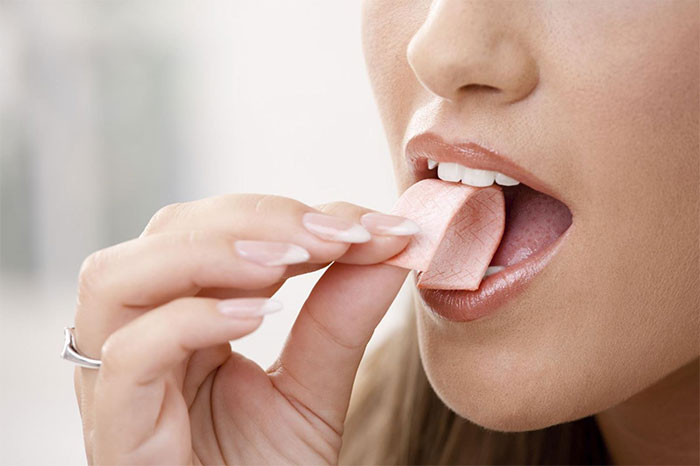A type of chewing gum containing a protein that “traps” the SARS-CoV-2 virus may limit the amount of virus in saliva, thereby preventing the spread of pathogens when talking or coughing.
A research team at the University of Pennsylvania (USA) explains that this chewing gum contains a replica of ACE2 protein, which is found on the surface of cells that the SARS-CoV-2 virus uses as a “gateway” to invade and infect them.

Illustration – NBC News
Reuters reports that observations from experiments using saliva and throat swab samples from Covid-19 patients show that SARS-CoV-2 virus has self-associated with the ACE2 “receptors” in the chewing gum. As a result, the viral load in the samples decreased by more than 95%.
The authors state that the taste of this “virus-trapping” gum is similar to regular chewing gum and can be stored for many years at room temperature. Additionally, chewing does not damage the ACE2 protein molecules.
They emphasize that using chewing gum to reduce the viral load in saliva will complement vaccines in the fight against Covid-19. This product is particularly useful in countries where vaccine coverage is not yet widespread.
In related developments, scientists believe that the protective ability of mRNA technology vaccines against Covid-19 may last longer after receiving a booster dose.
They measured the vaccine response levels before and after administering a booster dose to 33 healthy adults who had received their second dose about 9 months prior.
Before the booster shot, their antibody levels had decreased by about 10 times compared to when they had just received the second dose. From 6 to 10 days after receiving the third dose, their antibody levels increased 25 times and were five times higher than after receiving the two standard doses.
In volunteers who had contracted Covid-19 prior to vaccination, their antibody levels after receiving the booster were 50 times higher than at the time after their infection.
Co-author of the study, Alexis Demonbreun from the Feinberg School of Medicine at Northwestern University in Chicago, stated: “Because these antibody levels are very strong, the booster shot may provide longer-lasting protection compared to the two standard doses.”


















































